What is BRI Monitor?
Transparency and accountability are critical for ensuring the quality of infrastructure projects. BRI Monitor represents a global collaboration among independent think tanks and civil society organizations with the goal of promoting transparency and accountability in significant infrastructure projects funded through the Belt and Road Initiative (BRI). This website serves as a platform for publishing research and a knowledge repository on BRI projects worldwide. The BRI Monitor’s key output, the Transparency Heatmap, is a critical tool that can be used to advocate for better governance of major infrastructure projects.
BRI Monitor partners include eight civil society organizations in Southeast Asia, the Pacific, Central Asia, and Africa—the Institute for Democracy and Economic Affairs (IDEAS) of Malaysia, Stratbase Albert Del Rosario Institute (ADRi) of the Philippines, Sandhi Governance Institute (SGI) of Myanmar, the Institute of National Affairs (INA) of Papua New Guinea, Future Forum of Cambodia, the Central Asian Development Institute (CADI), the Centre for Journalism Innovation and Development (CJID) in Nigeria, and the Ghana Integrity Initiative (GII).
These organizations have studied the regulatory environments surrounding large infrastructure projects in their respective countries to identify regulatory gaps and propose solutions. The projects take various forms, including public private partnerships (PPP), and are funded through different mechanisms including official development assistance. Partner organizations have each produced a set of case studies that assess selected projects’ transparency levels based on 38 data points, from basic project information to the tendering process to project completion. Last but not least, each case study maps out the structure of the relevant project to identify the domestic and international entities involved in the project and to understand the degree of public financial exposure resulting from each project.
BRI Monitor is supported by the Center for International Private Enterprise (CIPE).
Promoting Accountability
BRI Monitor’s qualitative research aims to provide insight into the governance of Belt and Road Initiatives (BRI) fro Southeast Asia and the Pacific to Africa, and inform policy advocacy within and across countries in the region.
Using selected cases, researchers embark on three research steps to understand the projects and uncover governance gaps in BRI projects.

Project Narrative
This step focuses on the nature of the projects, their background and structures, actors involved in planning and implementing the projects, and recording issues raised by the public and in-country experts.
Transparency Assessment
This step aims to assess public availability and quality of key information of the projects using the Infrastructure Data Standards (IDS) for proactive disclosure developed by the Construction Sector Transparency Initiative (CoST).

Regulatory Review
In the third step, organizations assess the regulatory frameworks in four key project types to ensure projects under the BRI are well-governed. The four key project types are: government procurement, public-private partnership, projects involving state-owned enterprises, and official development assistance. In this step, researchers evaluate whether the in-country regulatory frameworks are consistent with international standards and whether the studied projects followed these existing frameworks.
Partners
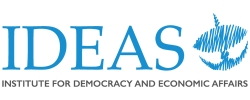
Institute for Democracy and Economic Affairs (IDEAS)
The Institute for Democracy and Economic Affairs (IDEAS) is a nonprofit research institute, dedicated to promoting solutions to public policy challenges and focusing on three overarching missions: advancing a competitive economy, ensuring trust in institutions, and promoting an inclusive Malaysia. IDEAS is Malaysia’s first independent think tank, free of personal interests and partisan influences.
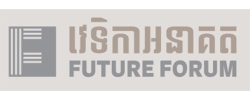
Future Forum
Future Forum is an independent think tank based in Phnom Penh, Cambodia. Founded by Cambodian human rights leader Ou Virak in 2015, Future Forum is an evidence-based think tank that focuses on research, analysis, and public policy and represents a dynamic response to an identified “policy gap” in Cambodia.
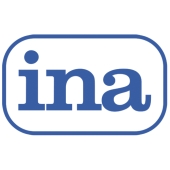
Institute of National Affairs (INA)
The Institute of National Affairs (INA) is a privately funded, non-profit policy research institute, or “think tank”, in Papua New Guinea (PNG). The INA’s primary role is to carry out public policy-related research and disseminate the results as widely as possible to the community, government agencies, statutory institutions, learning institutions, and politicians. The INA administers the Consultative, Implementation, and Monitoring Council (CIMC) as a mechanism for public/ private sector and civil society dialogue on key development issues of public interest.

Sandhi Governance Institute
Sandhi Governance Institute is a Myanmar Policy Research Institute with a focus on enhancing capacities of political parties and civil society organizations, increasing transparency and accountability in the public sector, and strengthening participation of all key stakeholders in public affairs and major investments to promote democratic governance in Myanmar.
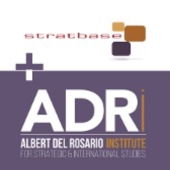
Stratbase ADR Institute for Strategic and International Studies (ADRi)
The Stratbase ADR Institute for Strategic and International Studies (ADRi) is an independent international research organization focused on the in-depth analysis of economic, social, political, and strategic issues influencing the Philippines and the Indo-Pacific region. In the age of geopolitical uncertainties and technological advancements, ADRi gives equal importance to the interdependent nature of states, sectors, and stakeholders in its strategic analyses and solutions design.
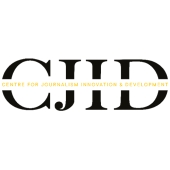
CJID: Centre for Journalism Innovation and Development
The Centre for Journalism Innovation and Development (CJID) is a West African media innovation and development think (and do) tank. The Centre has been a leader in investigative journalism, innovation, open data, verification, the promotion of journalist welfare and safety, elections, and the freedom of information and expression. In 2020, the CJID expanded its footprint beyond Nigeria and moved into specific niches in Ghana, Sierra Leone, Liberia, and The Gambia.
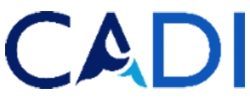
CADI: Central Asian Development Institute
The Central Asia Development Institute (CADI) is a think tank established in 2011 in Kyrgyzstan. CADI specializes in the production of qualitative and quantitative economic research, collection of macro- and micro-level data, provision of consulting services and capacity building training in Central Asia. CADI has implemented 73 research and consulting projects in areas such as entrepreneurship, economic and social development, good governance, investment policy, energy, climate change, environmental sustainability, agriculture, IT infrastructure, transport, trade and infrastructure.
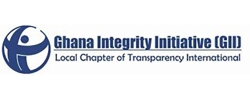
GII: Ghana Integrity Initiative
Ghana Integrity Initiative (GII), the Local Chapter of Transparency International (TI), was launched in 1999 as a non-partisan, non-profit civil empowerment organization with the core mission of combating corruption through the creation of a National Integrity System. GII’s strategy and all its activities are rooted in its core values: integrity, transparency, accountability, independence, impartiality, objectivity, and cooperation.
Supported By
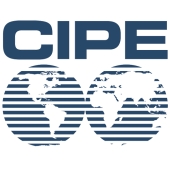
Center for International Private Enterprise (CIPE)
The Center for International Private Enterprise (CIPE) works to strengthen democracy through private enterprise and market-oriented reform. CIPE does this by partnering with local business associations, chambers of commerce, think tanks, universities, and advocacy organizations to create business-led solutions to social and economic problems that affect their regions. CIPE has carried out nearly 3,000 programs in 138 countries since its founding in 1983. CIPE’s support to the BRI Monitor network is intended to raise awareness about the impact of foreign investments on recipient countries, including whether capital flows strengthen or weaken democratic institutions and principles. Corrosive Capital deals, often from authoritarian regimes, exploit governance gaps and may corrupt markets so that Constructive Capital investments that generate greater opportunity cannot enter. CIPE is working with partners in the Indo-Pacific and worldwide to mitigate the risk of such economic and political manipulation, promote accountability, help businesses thrive, and safeguard the interests of citizens.
